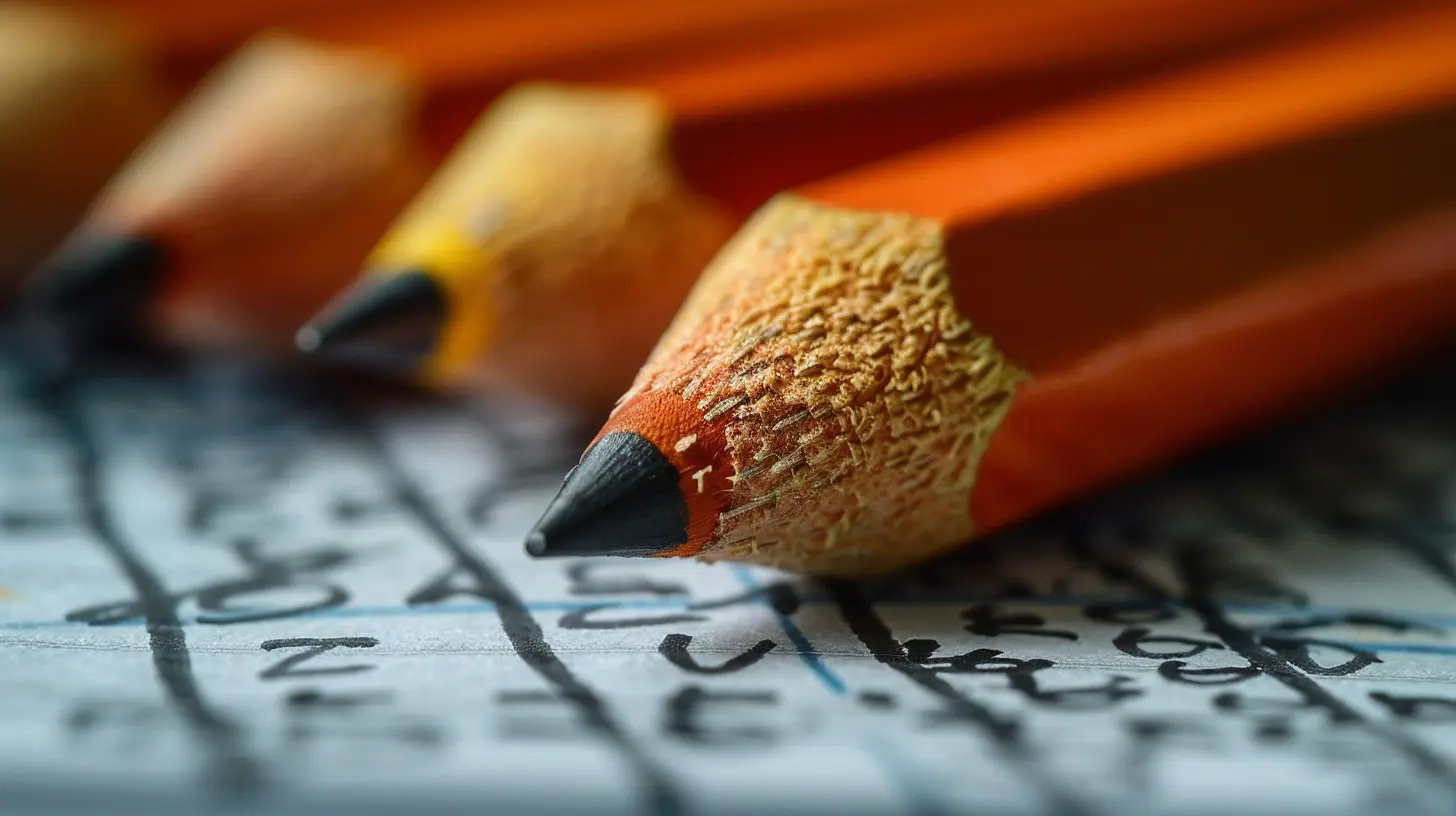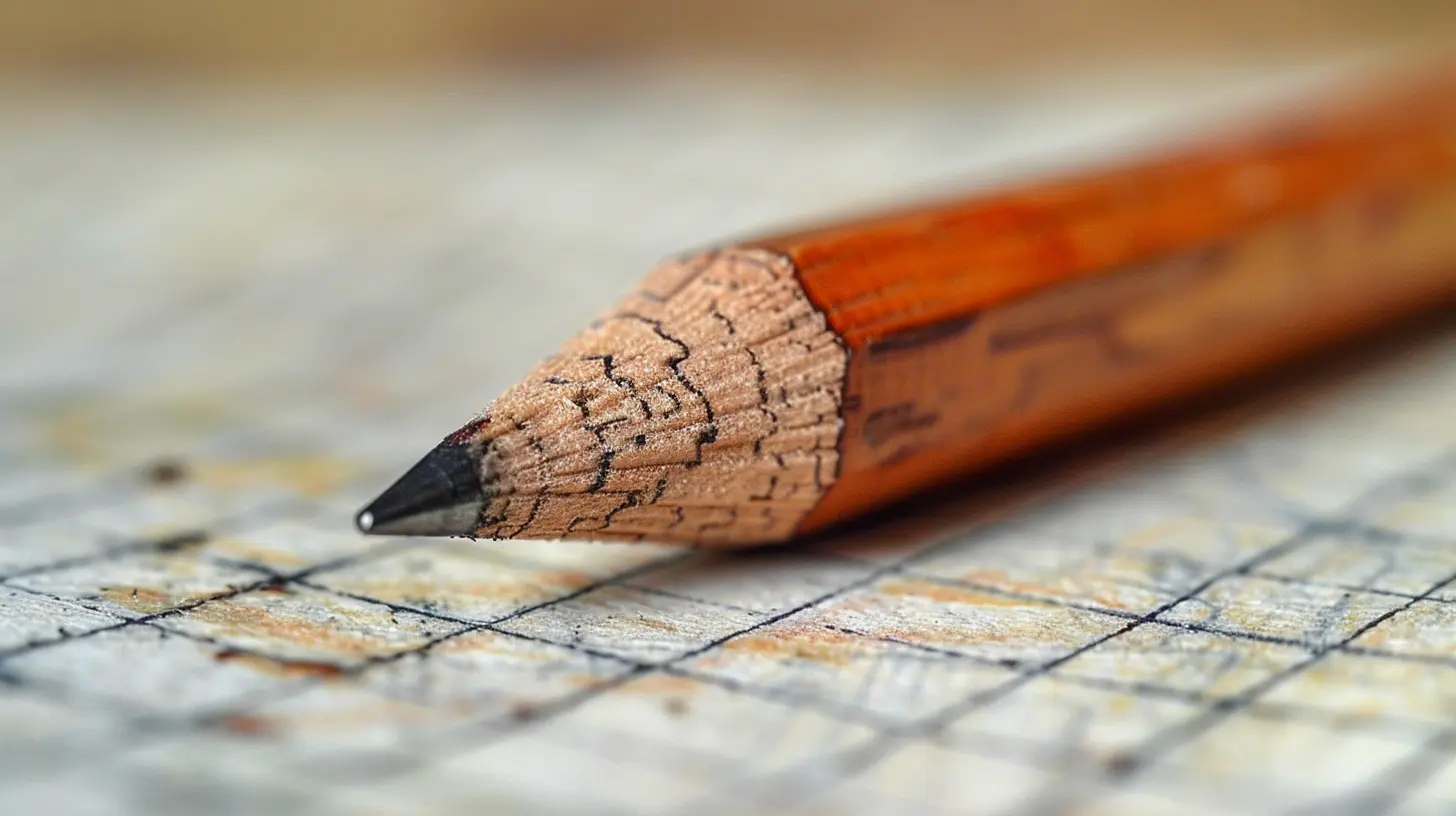A Guide to Effective Self-Assessment Techniques for Students
31 July 2025
Self-assessment. It's a term we often hear, but how often do we really understand its power? If you're a student, self-assessment can be a game-changer. It’s not just about grading yourself or checking off boxes. It’s about reflecting on your progress, understanding your strengths and weaknesses, and then using that knowledge to improve. Think of it as a roadmap that shows you where you are, where you need to go, and how to get there.
But let’s be real—self-assessment isn't always easy. It can feel awkward or even intimidating. After all, who enjoys pointing out their own flaws? (Spoiler: no one.) But the truth is, once you master self-assessment, you'll be unstoppable. So, how do you do it effectively? Don’t worry, I’ve got you covered. Here’s a guide to some of the best self-assessment techniques that will help you thrive academically.

Why Is Self-Assessment Important?
Before we dive into the techniques, let’s first understand why self-assessment matters.Picture this: You’re driving to a new destination, and halfway through the trip, your GPS stops working. How do you know if you're still on the right track? You might check the road signs, ask for directions, or look at landmarks. Self-assessment works the same way. It helps you make sure you're still on course to meet your academic goals.
When done properly, self-assessment can:
- Encourage self-awareness: You’ll know exactly what areas need improvement.
- Boost motivation: Seeing progress, no matter how small, can give you a huge confidence boost.
- Develop critical thinking skills: You’ll learn how to evaluate your own work objectively.
- Improve learning outcomes: When you know what to focus on, your study sessions become more effective.
Now that you understand the "why," let’s look at the "how."
Effective Self-Assessment Techniques
1. Set Clear, Measurable Goals
You can’t assess what you don’t measure, right? So, the first step is to set clear, measurable goals. These goals should be SMART: Specific, Measurable, Achievable, Relevant, and Time-bound.For example, instead of saying, "I want to get better at math," you could say, "I want to improve my algebra skills by practicing 30 problems a week for the next month."
Why does this work? Because it gives you a concrete target to aim for and an easy way to check your progress. You’ll know exactly what success looks like.
How To Do It:
- Break big tasks into smaller, manageable goals.- Write down your goals. This makes them feel more real.
- Set deadlines to keep yourself accountable.
2. Use Rubrics or Checklists
Rubrics aren’t just for teachers! You can create your own rubric or checklist to guide your self-assessment. A rubric is essentially a scoring guide that outlines what success looks like at different levels of performance.Let’s say you’re writing an essay. Your rubric might include criteria like "clarity of argument," "use of evidence," and "grammar." You can score yourself on each criterion to see where you’re excelling and where you need to improve.
How To Do It:
- Break down your assignment or study task into key components.- Create a simple scoring system (e.g., 1-5) for each component.
- Be honest with yourself when scoring!
3. Utilize a Reflection Journal
This might sound a little woo-woo, but trust me—reflection journals are gold. Keeping a journal helps you document your learning experiences and reflect on what worked, what didn’t, and how you felt about it.After a big test or assignment, write down what strategies you used, how you felt during the process, and what you learned. Over time, you’ll start to notice patterns that will help you refine your approach.
How To Do It:
- Set aside 10 minutes after study sessions or exams to jot down your thoughts.- Answer questions like: What went well? What didn’t? How can I improve next time?
- Review your journal entries periodically to spot trends.
4. Get Feedback From Peers or Mentors
Sometimes, it’s hard to be objective about your own work. That’s where feedback from others comes in. Ask a friend, classmate, or mentor to review your work and give you constructive criticism.But here’s the catch—you have to be open to hearing the critiques. Don’t be defensive. Remember, the goal is to improve, not to prove that you’re perfect.
How To Do It:
- Share your work with someone you trust.- Ask for specific feedback. For example, if you’re working on a presentation, you might ask, "Did my main points come across clearly?"
- Use the feedback to guide your self-assessment.
5. Try the "Two Stars and a Wish" Technique
Bet you didn’t think self-assessment could be this simple, huh? The "Two Stars and a Wish" technique is a quick and easy way to reflect on your performance. Here’s how it works:- Two Stars: Identify two things you did well.
- One Wish: Identify one area where you wish you could improve.
This technique forces you to acknowledge your strengths while also giving you a clear focus for improvement.
How To Do It:
- After completing an assignment or study session, write down two things you did well and one thing you can work on.- Use this simple framework regularly to stay aware of your progress.
6. Use Technology to Track Progress
We live in the digital age, so why not use technology to your advantage? There are plenty of apps and tools designed to help with self-assessment. For example, apps like Trello, Notion, or even a simple Google Doc can help you track your goals, check off completed tasks, and evaluate your progress over time.Some apps even allow you to set reminders, so you stay on track with your self-assessment process.
How To Do It:
- Choose a platform that works best for you.- Create a board, document, or folder to organize your tasks and goals.
- Set reminders or deadlines within the app to keep yourself accountable.
7. Test Yourself Regularly
Let’s be honest—no one likes tests. But when it comes to self-assessment, tests can actually be your best friend. The key here is formative assessment, meaning you're testing yourself not to get a grade, but to see where you stand before the actual exam.Whether it’s flashcards, practice quizzes, or simply explaining concepts to a friend, self-testing helps you identify gaps in your knowledge. Plus, it’s a great way to reinforce what you’ve already learned.
How To Do It:
- Create your own quizzes or use apps like Quizlet.- After each study session, test yourself on the content.
- Keep track of the areas where you struggled and review them later.

Common Self-Assessment Pitfalls to Avoid
Okay, so we’ve gone over a bunch of techniques. But it’s also important to know what not to do. Here are a few common mistakes that can derail your self-assessment:1. Being Too Hard on Yourself: Self-assessment isn’t about beating yourself up. If you’re too critical, you’ll lose motivation. Focus on progress, not perfection.
2. Skipping the Reflection Part: Sometimes, we’re so eager to move on to the next thing that we forget to reflect. Don’t skip this step! Reflection is key to learning from your experiences.
3. Relying Only on Grades: While grades are important, they don’t tell the whole story. Focus on your understanding of the material, not just the letter on your report card.
4. Procrastinating: If you wait until the night before an exam to assess your progress, it’s too late. Make self-assessment a regular part of your study routine.
Final Thoughts
Self-assessment might seem like a lot of work at first, but trust me, the payoff is huge. Not only will you become a more effective student, but you’ll also develop critical thinking skills that will serve you well beyond the classroom. Start small—maybe with a reflection journal or a simple checklist—and build from there.Remember, you are your own best teacher. No one knows your learning style, strengths, and weaknesses better than you do. So why not take control of your own academic journey? After all, the more you know about yourself, the farther you can go.
all images in this post were generated using AI tools
Category:
Self AssessmentAuthor:

Anita Harmon
Discussion
rate this article
1 comments
Liv James
This article offers valuable insights into self-assessment techniques, empowering students to take charge of their learning. The practical strategies highlighted can significantly enhance self-awareness and drive academic improvement. A must-read for proactive learners!
August 31, 2025 at 3:09 AM

Anita Harmon
Thank you for your thoughtful feedback! I'm glad you found the strategies valuable for enhancing self-awareness and academic growth. Happy learning!


